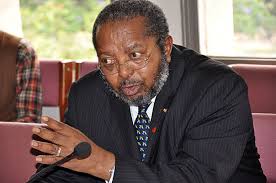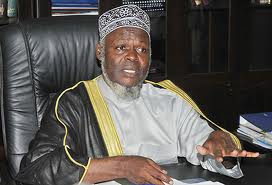
The Bank of Uganda has maintained the Central Bank Rate at 11% to boost economic activity.
The CBR—rate at which commercial banks borrow from the Central Bank— has been maintained since June, with the hope of encouraging commercial banks to provide low interest rate loans to the public.
This, according to the Central Bank Governor Tumusiime Mutebile, will in turn support increased investment by the private sector in the economy.
Uganda’s economy grew by 3.3 per cent in the financial year 2012/13 and 4.5 per cent in the financial year 2013/14.
Addressing journalists early today to announce the policy rate for February and March 2015, the governor Bank of Uganda, Mr Emmanuel Tumusiime Mutebile, said: “The Bank of Uganda high frequency indictors of economic activity point to a pick-up in real economic activity over the last six months of 2014.
This lends to support to the projection of 5-6 per cent for real growth in 2014/15, which is line with the economy’s estimated medium-term potential output growth.”
Mr Mutebile explained that growth in 2014/15 is supported by increased public investment and the recovery of private sector credit, which in turn boosts private sector investment and consumption.
Since the previous meeting of the Monetary Policy Committee in December 2014, several developments have affected the medium term inflation outlook in Uganda.
For instance, the sharp depreciation of the exchange rate, which occurred in January 2015, will raise the domestic prices of traded goods.
However, Mr Mutebile said lower global oil prices and domestic food crop prices, to the extent that they persist during 2015, will dampen inflationary pressures.
“Taking into account these developments and projected strength of economic activity in 2015, the BoU forecasts indicates that core inflation will gradually rise to a range of 4 to 6 per cent over the next 12 months,” he said.
The risks for the economy according to Mr Mutebile include a widening trade deficit, the possibility that investments in the oil sector will be delayed given the fall in global oil prices and possible volatility in global financial markets.
In her assessment to Bank of Uganda monetary policy, Ms Razia Khan Standard Chartered Bank Head of Africa Macroeconomics, said: “Even though Bank of Uganda has left interest rate unchanged, in our view, persistent pressure on the depreciation of Uganda shilling could trigger an earlier change in the monetary stance than many currently expect.”
The managing director of Alpha Capital, Mr Stephen Kaboyo, told Daily Monitor that the outlook on the currency suggests that depreciation pressures will remain.
“The USD/Uganda upside risks on the horizon will take centre stage in shaping policy direction,” he said.
On public investment spending, Mr Kaboyo said government will continue to spend heavily in order to achieve its outlined infrastructure plans going forward, while on the domestic revenue mobilisation, the expectation is that URA performance will improve as the tax reforms recently introduced take root.
“Going forward government is likely to continue borrowing from the domestic banking system to plug any shortfalls and this will exert upward pressure on rates in the coming months,” he said.
Story By Martin Luther Oketch








